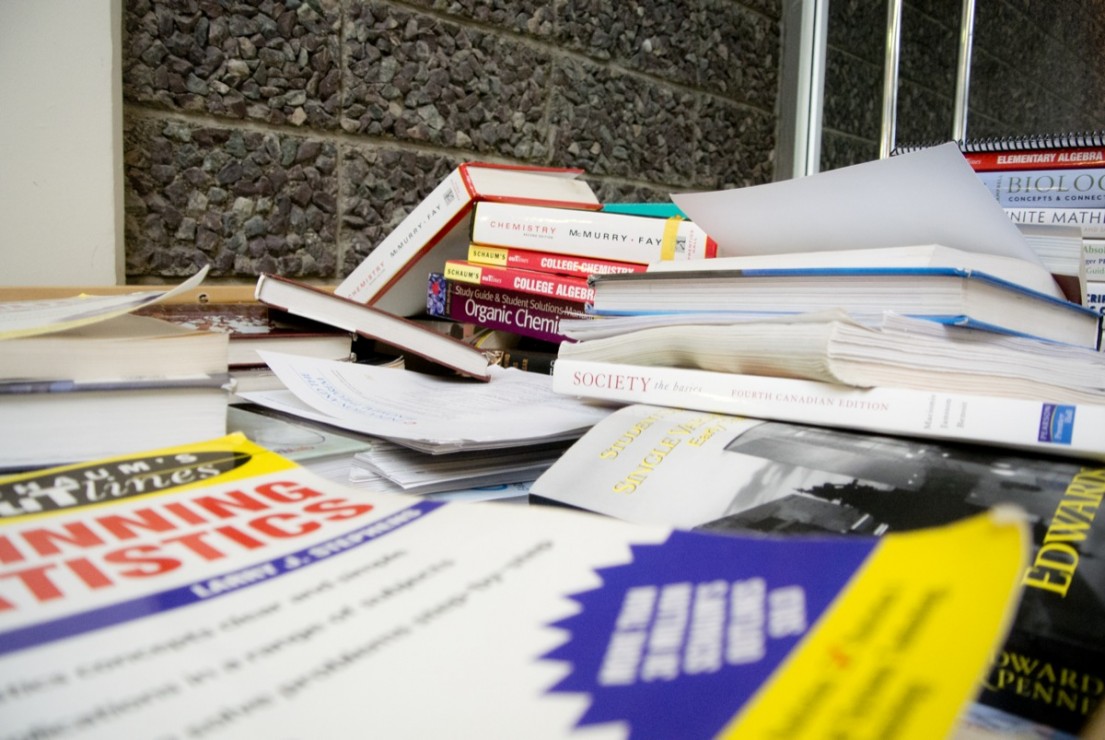Sustainability was the buzzword on the UVic campus last week, and it made me think more the sustainability challenges we face on campus. It was the Sustainability Photo Contest itself, with its $250 reward in each of three categories, which highlighted a glaring obstacle in our efforts to address the environmental crisis.
If the organization charged with addressing sustainability on campus conceptualizes “reward” as increased consumption in the form of a bookstore shopping spree, I fear we are doomed.
At first glance, a gift certificate seems like a logical prize for a student contest — after all, we all need to buy textbooks, right? Well, maybe not. Textbooks are relics of a time before Google, before online periodicals, Khan Academy, PLoS (the Public Library of Science), and the copious high-quality university lectures available as podcasts or videos.
After all, why should we be required to purchase an expensive textbook when the same information can be found on Wikipedia? While many professors on campus will tell you that such sites are not reliable sources of information, a quick visit to Google Scholar will tell you otherwise. A search for “Wikipedia accuracy” informs me that in subjects as diverse as pharmacology, political science, and nursing, the accuracy of Wikipedia entries is comparable to more traditional pedagogical tools such as textbooks.
Alternative resources can also address another issue highly relevant to most students: affordability. In 2012, BCcampus, a project funded by the B.C. Ministry of Advanced Education, was asked to release 40 open source textbooks for the most highly-enrolled first and second year classes on university and college campuses across the province. They have since received funding for 20 additional texts. While the initial impetus was to make higher education more accessible and affordable to B.C. residents, it also addresses sustainability as students can access books in digital form.
The high cost of textbooks, coupled with their limited utility outside of class, means that many students choose to sell their used textbooks back to the bookstore at the end of the semester—at least until a newer edition renders that glossy, expensive text obsolete. Each year a massive pile of books is collected and shipped off to Africa, where knowledge of Canadian history or politics, or North American literature is expected to be celebrated.
Perhaps it represents yet another form of imperialism: “Our knowledge is better than yours; here’s what you need to learn.” Additionally, this constant cycle of buying and selling normalizes the student not so much as a learner than as a consumer. The purchase and sale of used books offers a false solution to consumption, and stands in the way of truly innovative solutions.
Unlike traditional textbooks, online resources present lower barriers to engagement and encourage sharing and socialization, allowing members to contribute in meaningful ways. Any wiki project, for example, includes two essential elements: the textual artifact and the community producing it.
In my mind, textbooks represent unnecessary consumption, antiquated thinking, hierarchical social organization, and a reinforcement of an imaginary divide between legitimate and illegitimate knowledge. Perhaps most importantly, they represent an individualistic approach to producing and reproducing knowledge. These same problems pervade too many approaches to campus (and global) sustainability. It is this focus on the individual, and on individual solutions, such as choosing to bike rather than drive, that will prevent us from making impactful changes. We can’t forget the importance of community when solving a shared problem.
We need to move beyond the obsolete ideas that lead us to irresponsible ways of being in this world. We need to think of reward structures that are not based on the improved ability to consume. And we should stop thinking that textbooks are necessary, and start thinking of alternatives to such waste.
Next week: Wrenna continues the discussion on open source textbooks as she talks to two UVic profs, Dr. William Little and Dr. Bruce Ravelli. Both profs have written textbooks: one open source (Little), and one that is sold in the UVic Bookstore (Ravelli).








